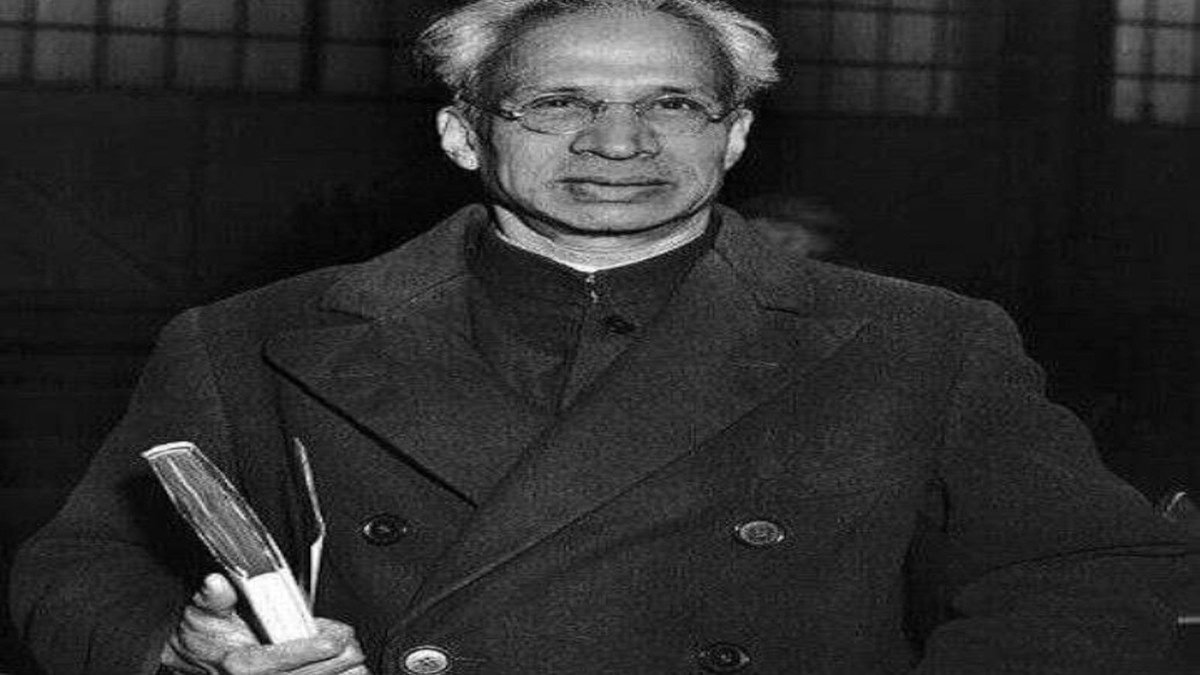Sarvepalli Radhakrishnan
Sarvepalli Radhakrishnan, one of India’s most distinguished scholars and statesmen, remains an enduring figure in Indian history. Born on September 5, 1888, in a small village in Tamil Nadu, Radhakrishnan’s journey from a humble background to becoming India’s second President is a testament to his intellect, perseverance, and deep commitment to education and philosophy. His contributions to Indian thought, politics, and education have left an indelible mark on the nation, making him a revered figure not only in India but across the world.
Radhakrishnan’s life and work reflect his profound belief in the power of education as a tool for both individual and societal transformation. His legacy is celebrated every year on September 5th, which is observed as Teacher’s Day in India in honor of his contributions to education. This article delves into the life, philosophy, and legacy of Sarvepalli Radhakrishnan, exploring his multifaceted roles as a philosopher, teacher, statesman, and diplomat.
Early Life and Education OF Sarvepalli Radhakrishnan
Sarvepalli Radhakrishnan was born into a Telugu-speaking Brahmin family in the village of Tiruttani, located in what is now Tamil Nadu. His father, Sarvepalli Veeraswami, was a subordinate revenue official, and his mother, Sitamma, was a devout homemaker. Despite their modest means, Radhakrishnan’s parents were determined to provide their son with a good education, recognizing his early intellectual potential.
Radhakrishnan began his formal education at the age of eight, attending the Primary Board High School in Tiruttani. He later moved to the Hermannsburg Evangelical Lutheran Mission School in Tirupati and then to Voorhees College in Vellore. It was at Madras Christian College, however, that Radhakrishnan’s academic brilliance truly began to shine. He pursued a bachelor’s degree in philosophy, graduating with first-class honors in 1907. Radhakrishnan’s deep interest in philosophy, particularly in the works of Western philosophers like Plato, Immanuel Kant, and Friedrich Hegel, would shape his intellectual pursuits throughout his life.

Academic Career and Philosophical Contributions OF Sarvepalli Radhakrishnan
Radhakrishnan’s academic career began as a lecturer in philosophy at Madras Presidency College in 1909. His early lectures were noted for their clarity and depth, and he quickly gained a reputation as a brilliant teacher. In 1918, he was appointed to the prestigious King George V Chair of Philosophy at the University of Calcutta, where he continued to develop his philosophical ideas.
Radhakrishnan’s philosophy was deeply rooted in the Indian tradition, particularly in the Vedanta school of thought, which he sought to interpret and communicate to the Western world. He believed in the essential unity of all religions and the underlying spiritual truth that transcends individual religious practices. His work aimed to bridge the gap between Eastern and Western philosophies, emphasizing the importance of spirituality in a world increasingly dominated by materialism.
One of Radhakrishnan’s most significant philosophical contributions was his interpretation of Advaita Vedanta, a non-dualistic school of Hindu philosophy. He argued that the ultimate reality, or Brahman, is beyond the comprehension of the human mind and that the individual self (Atman) is identical with Brahman. This idea of the unity of the self and the divine was central to Radhakrishnan’s thought and became a recurring theme in his writings.
Radhakrishnan’s writings on religion and philosophy gained international acclaim, and he became a prominent figure in the academic world. His books, including Indian Philosophy (1923-27), The Philosophy of the Upanishads (1924), and The Bhagavadgita: A Philosophical Commentary (1948), are considered seminal works in the field of Indian philosophy. These works not only introduced Indian philosophical thought to the Western world but also highlighted the relevance of spirituality in modern life.
Diplomatic Career and Contribution to Indian Independence
While Radhakrishnan’s academic achievements were remarkable, his contributions to India’s struggle for independence and his role as a diplomat are equally significant. As a scholar deeply influenced by Indian culture and philosophy, Radhakrishnan believed in the moral and ethical foundation of India’s quest for freedom from British rule. He saw education and the dissemination of Indian philosophy as vital tools in this struggle.
Radhakrishnan’s diplomatic career began in 1946 when he was appointed as India’s ambassador to the Soviet Union. At a time when the world was grappling with the aftermath of World War II and the beginning of the Cold War, Radhakrishnan played a crucial role in shaping India’s foreign policy. His diplomatic efforts helped to establish strong ties between India and the Soviet Union, which would later prove to be of strategic importance during the Cold War.
Radhakrishnan’s success as a diplomat was attributed to his deep understanding of both Eastern and Western cultures, his fluency in several languages, and his ability to engage in meaningful dialogue with world leaders. His tenure as ambassador laid the groundwork for India’s non-aligned foreign policy, which sought to maintain independence from the superpowers of the time.
In 1948, Radhakrishnan was appointed as the leader of the Indian delegation to UNESCO, where he advocated for international cooperation in education, science, and culture. His efforts at UNESCO underscored his belief in the power of education to foster global understanding and peace.
Presidency and Political Career OF Sarvepalli Radhakrishnan
Radhakrishnan’s contributions to India did not end with his diplomatic service. In 1952, he was elected as the first Vice President of India, a position he held for two terms until 1962. During his tenure as Vice President, Radhakrishnan also served as the ex-officio Chairman of the Rajya Sabha (the Upper House of India’s Parliament). In this role, he was known for his impartiality, wisdom, and ability to steer the house through difficult debates and discussions.
In 1962, Radhakrishnan was elected as the second President of India, succeeding Dr. Rajendra Prasad. His presidency was marked by his deep commitment to upholding the principles of democracy, secularism, and social justice. Radhakrishnan’s tenure as President coincided with a period of significant challenges for India, including the Sino-Indian War in 1962 and the ongoing efforts to build a cohesive and unified nation in the wake of partition.
As President, Radhakrishnan emphasized the importance of national unity, social harmony, and the development of a strong educational system. He believed that education was the foundation of a healthy democracy and that India’s future depended on the quality of its educational institutions. His speeches and writings during this period reflect his deep concern for the moral and ethical development of the nation.
Radhakrishnan’s presidency also saw the strengthening of India’s democratic institutions and the promotion of social welfare programs aimed at addressing poverty and inequality. His leadership was characterized by a commitment to human values, intellectual integrity, and a vision of India as a land of peace, prosperity, and spiritual wisdom.
Legacy and Impact OF Sarvepalli Radhakrishnan
Sarvepalli Radhakrishnan’s legacy is multifaceted, encompassing his contributions to philosophy, education, diplomacy, and politics. His life and work continue to inspire generations of scholars, educators, and leaders in India and around the world.
- Philosophical Legacy
Radhakrishnan’s philosophical work, particularly his interpretation of Advaita Vedanta, remains a cornerstone of Indian philosophy. His writings have been instrumental in introducing Indian philosophical thought to a global audience and in fostering dialogue between Eastern and Western philosophical traditions. Radhakrishnan’s emphasis on the unity of all religions and the spiritual basis of human existence continues to resonate with those seeking meaning and purpose in a complex world.
- Educational Reforms
Radhakrishnan’s commitment to education as a means of social transformation is perhaps his most enduring legacy. His advocacy for quality education, teacher training, and the moral development of students has had a lasting impact on India’s educational system. Teacher’s Day, celebrated on his birthday, is a testament to the respect and admiration that educators and students alike have for his contributions to education.
- Diplomatic Achievements
Radhakrishnan’s diplomatic efforts helped to shape India’s foreign policy during a critical period in the nation’s history. His work as an ambassador and his leadership at UNESCO underscored the importance of cultural exchange, international cooperation, and the pursuit of peace. Radhakrishnan’s diplomatic legacy is reflected in India’s continued commitment to non-alignment and its role as a mediator in global conflicts.
- Presidential Leadership
As India’s second President, Radhakrishnan set a high standard for political leadership. His commitment to democracy, secularism, and social justice helped to strengthen India’s democratic institutions and promote social harmony. Radhakrishnan’s presidency is remembered for its emphasis on moral and ethical leadership, and his vision of India as a nation rooted in spiritual and cultural values.
- Inspiration for Future Generations
Sarvepalli Radhakrishnan’s life and work continue to inspire future generations of Indians. His dedication to education, his philosophical insights, and his leadership in both domestic and international arenas serve as a model for those who seek to contribute to the betterment of society. Radhakrishnan’s legacy is a reminder of the power of knowledge, wisdom, and integrity in shaping the future.
Conclusion
Sarvepalli Radhakrishnan was a towering figure in Indian history, whose contributions to philosophy, education, diplomacy, and politics have left an indelible mark on the nation. His life was a testament to the power of intellect, perseverance, and a deep commitment to the greater good. As a philosopher, Radhakrishnan bridged

















This post really resonated with me. Keep up the good work.
This is a great resource. Thanks for putting it together!
Thanks for the comprehensive overview. Very helpful!